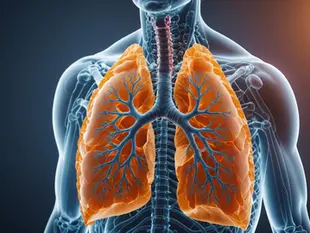sravanthikrishna

Asthma and Its Impacts: What is the Disease That Hurts Millions
2
7
0
Asthma is an ongoing respiratory condition that inflames and constricts the airways of the lungs, impairing breathing. It is an inflammation of the air tubes characterized by recurrent episodes of wheezing, breathlessness, chest tightness, and coughing. It may affect anyone but tends to occur in children. Asthma has over 262 million affected people worldwide, causing hundreds of thousands of deaths every year, reports the World Health Organization.
What Triggers Asthma?
Asthma is triggered by a mix of genetic and environmental factors. While the underlying reason isn't precisely known, several common triggers and risk factors include:
Allergens (dust mites, pet dander, pollen, mold)
Air pollution and smoke
Respiratory infections
Physical activity (exercise-induced asthma)
Cold weather or air
Strong emotions or stress
Certain medications (like aspirin or beta-blockers)
Occupational exposure (fumes, chemicals, dust)
People having a family history of asthma or allergies are also at increased risk of developing it.
How Asthma Impacts the Body
Asthma impacts the lungs and breathing system by:
Airway Inflammation: The airway lining swells and becomes inflamed, which narrows the airway.
Bronchoconstriction: The airway muscles contract, making it more difficult to breathe.
Excess Mucus Production: The lungs secrete excess mucus, which further congests the airways.
These alterations result in the characteristic asthma symptoms, which may be mild or life-threatening.
Common Symptoms
Symptoms of asthma can be different for different individuals. While some might have symptoms at times, others have them all the time or frequently. Some of the common symptoms are:
Wheezing (whistling while breathing)
Shortness of breath
Tightness or pain in the chest
Coughing continuously, particularly in the early morning or at night
Problem sleeping because of trouble breathing
These symptoms become more severe suddenly during an asthma attack and need urgent attention.
Types of Asthma
There are a few different kinds of asthma, based on causes and individual variation:
Allergic Asthma: Caused by allergens such as pollen, mold, or pet dander.
Non-Allergic Asthma: Caused by cold air, stress, or exercise.
Exercise-Induced Asthma: Develops during or after exercise.
Occupational Asthma: Result of irritants in the workplace.
Childhood Asthma: Typical for children and sometimes outgrown in adults.
Severe Asthma: A more challenging-to-treat type that fails to respond to conventional treatment.

Long-Term Effects of Asthma
If left unchecked, asthma has the potential to cause long-term complications, including:
Decreased Lung Capacity: Ongoing inflammation could decrease lung capacity over the course of a person's life.
Increased Number of Hospital Visits: Unmanaged asthma creates a higher risk for emergency treatment or hospitalization.
Reduced Quality of Life: Ongoing symptoms can restrict activity, impair sleep, and decrease productivity.
Mental Illness: Ongoing illness may create anxiety or depression in some patients.
However, with the right treatment and lifestyle changes, most individuals with asthma can lead active, healthy lives.
Asthma Management and Treatment
While there is no cure for asthma, it can be well-controlled. Treatment generally involves:
Inhalers:
Reliever Inhalers (such as albuterol): Offer fast relief in an attack.
Preventer Inhalers (such as corticosteroids): Prevent inflammation and symptoms.
Oral Medications: For long-term control in severe cases.
Allergy Treatments: Antihistamines or immunotherapy.
Lifestyle Changes:
Avoiding known triggers
Keeping indoor air clean
Regular exercise with appropriate precautions
Stress management skills
Collaboration with a healthcare professional to develop an Asthma Action Plan is important in identifying early signs, understanding how to react to attacks, and modifying medication when necessary.
Living with Asthma
Although asthma is a serious condition, it can be controlled. Education and awareness are the most important things. Asthma patients must know their triggers, observe their symptoms, and take medicines as directed. With proper management strategies, one can minimize the frequency and severity of attacks and live a normal, active life.
Conclusion
Asthma is more than periodic breathing trouble—it's a chronic condition that, if not addressed, can significantly affect daily life. With knowledge of its causes, symptoms, and treatments, people can become proactive about their health and reduce the effect asthma has on their lives. Thanks to the advancements of modern medicine, careful planning, and awareness of lifestyle habits, it is not only possible to live well with asthma—it's completely attainable.





